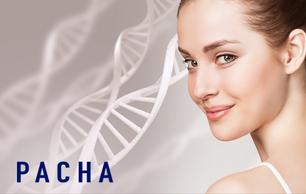19.12.2023
What is Collagen?

Let's Get to Know Collagen
What is Collagen?
Collagen, known as collagen in English and expressed as collagen or gelatin in our language, is the most abundant type of protein in our body. This protein fiber constitutes approximately one-third of all the proteins in our body. In other words, it is a structurally important protein.
What Does Collagen Do?
It is found throughout our body, including bone, muscle, cartilage, skin, tendons, circulatory system, blood vessels, digestive system, hair, nails, teeth, in short, almost everywhere in our body.
Benefits of Collagen:
Acts as a glue that helps keep the body together, connecting joints and tendons to each other. With this feature, it is known to be recommended by many orthopedists as a permanent treatment for aches related to osteoarthritis, such as knee, arm, shoulder, etc.
It is widely recommended for collagen treatment, especially after fractures or other musculoskeletal traumas.
By renewing dead skin cells, it increases the elasticity of our skin and helps it stay firm.
By forming connective tissues and membranes, collagen takes on a protective barrier role, protecting our skin from toxins and other harmful factors.
The basic building block is fibroblast, the connective tissue cells (2).
Collagen, a valuable source of protein, is rich in amino acids such as proline, glycine, alanine, and arginine.
Who Is Collagen For?
Collagen can benefit those with musculoskeletal health problems, those who care about skin beauty, active athletes, children, the elderly, those who want to strengthen the immune system, and anyone who adopts a healthy diet.
The best option to naturally and in a food form take collagen is PACHA Chips, which has received awards both domestically and internationally.
COLLAGEN TYPES
There are at least 30 different types of collagen classified by structure, including fibrous, non-fibrous (network-forming), fibrillar, microfibrillar (fibrous), and membrane (3).
These varieties, classified biologically as collagen, are found in different known tissues, with different densities. However, 80% to 90% of collagen in our body consists of Types 1, 2, 3, 4, and 10 (4).
Collagen Type 1 is the most abundant type of collagen in the body. It consists of eosinophilic fibers that make up the parts of the body.
Collagen Type 1,
It is found in bones, tendons, skin, ligaments, and scar tissue. Type 1 collagen found in organs, ligaments, tendons, and skin supports bones, gives skin tightness and elasticity, keeps tissues together, and promotes wound healing (4).
Collagen Type 2
It is found in cartilage tissue and the structure of the eye.
Collagen Type 3
It is one of the main components of the extracellular matrix that forms our organs and skin. Effective in forming the structure of the heart and blood vessels, it provides elasticity to the skin and firmness to the tissues, supporting the structure of muscles, organs, and arteries.
Collagen Type 4,
It helps with liquid filtration in the skin. As important as this, it forms the surfaces of the digestive and respiratory organs. Type 4 collagen, most found in the deep layers of the skin, plays an important role in the formation of the basal lamina that surrounds muscles, fat, and organs, and also helps with liquid filtration in the skin.
Collagen Type 10,
It is involved in the formation of joint cartilages and new bones. It heals bone fractures and repairs synovial joints (5).
We talked about the benefits and types of collagen. So, what diseases can occur in case of collagen deficiency? Click here to read our article 'Diseases Related to Collagen Deficiency.'
ńįlgili √úr√ľnler
